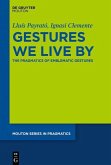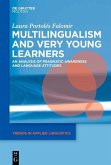Placing failed humor within the broader category of miscommunication and drawing on a range of conversational data, this text represents the first comprehensive study of failed humor. It provides a framework for classifying the types of failure that can occur, examines the strategies used by both speakers and hearers to avoid and manage failure, and highlights the crucial role humor plays in social identity and relationship management.
Dieser Download kann aus rechtlichen Gründen nur mit Rechnungsadresse in A, B, BG, CY, CZ, D, DK, EW, E, FIN, F, GR, HR, H, IRL, I, LT, L, LR, M, NL, PL, P, R, S, SLO, SK ausgeliefert werden.
Anna-Brita Stenström in: Functions of Language 233 (2016), 384-390









